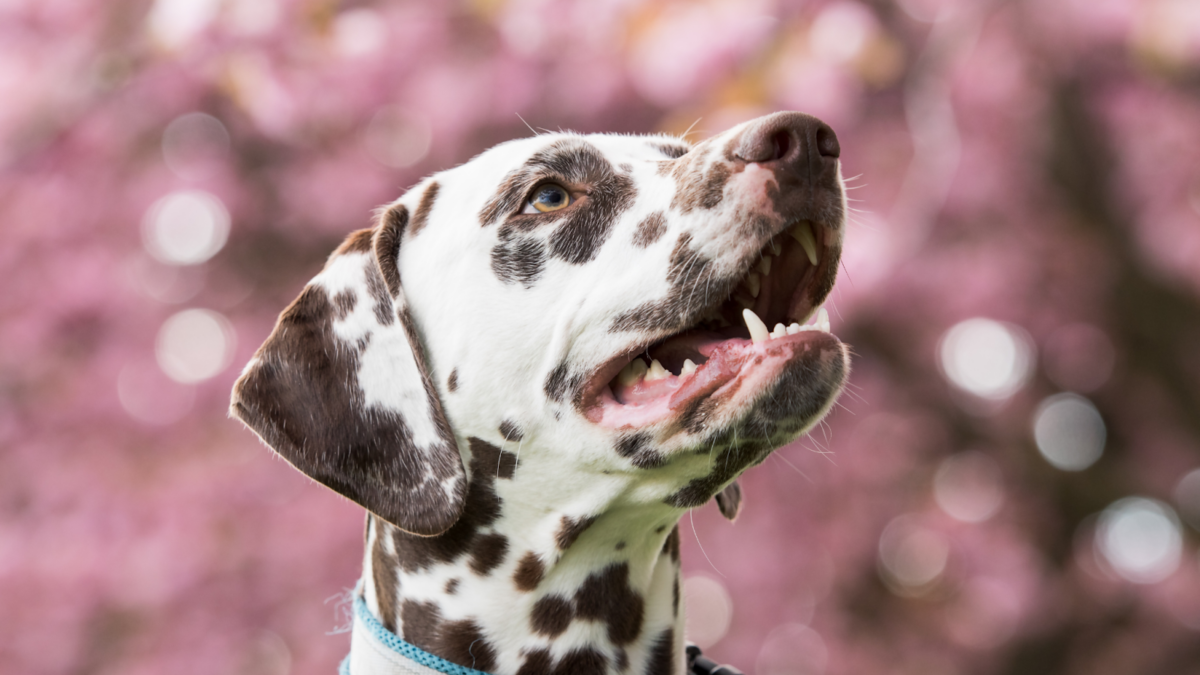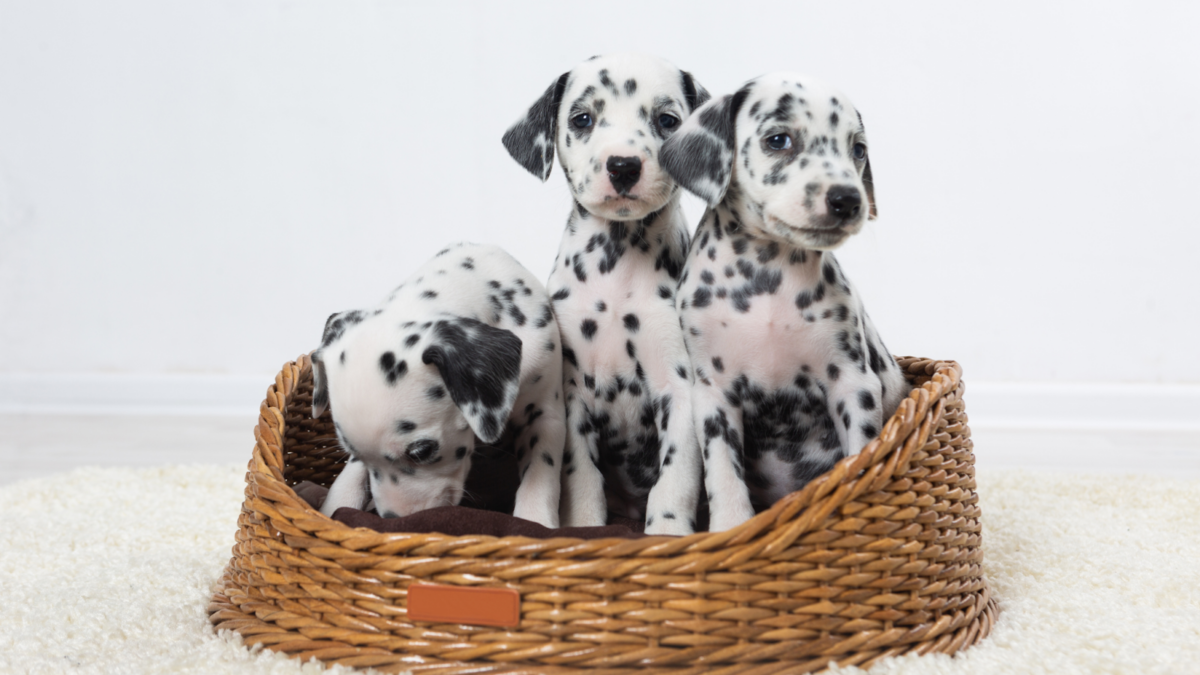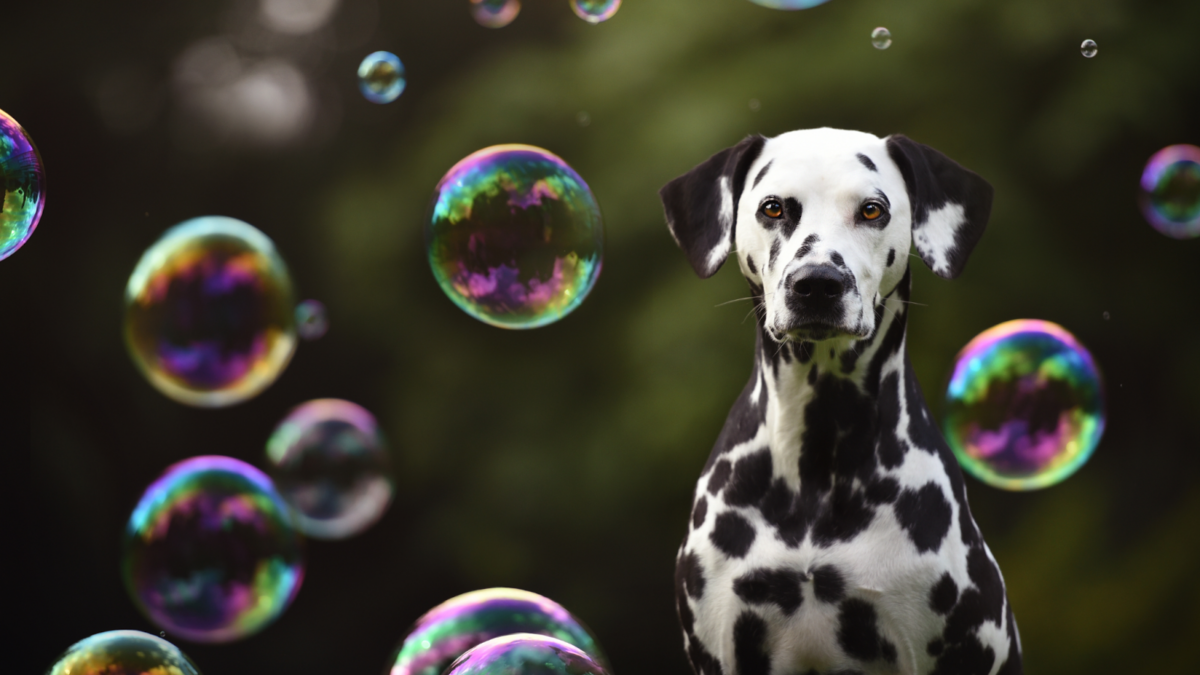When you’re considering bringing a Dalmatian into your life, it’s natural to wonder about their lifespan. The life expectancy of a Dalmatian is fairly typical for dogs of their size, often ranging between 11 to 13 years. Various factors can influence this estimate, such as genetics, health issues, and the level of care provided.
Dalmatians are known for their distinctive spotted coats and energetic personalities, but they can also be prone to certain genetic health conditions that may affect their longevity and in this article, we take a deep dive into the best research on dog lifespans to answer this question.
Ensuring a healthy lifestyle for your Dalmatian is crucial for maximizing their lifespan. Regular veterinary check-ups, a nutritious diet, and ample exercise will contribute to their overall health and well-being. Because Dalmatians are social animals, mental stimulation and companionship are also key components of their care. Taking these factors into consideration can help your Dalmatian lead a full and happy life.
So, How Long Do Dalmatians Live?
Studies show that the lifespan of a Dalmatian can vary, typically ranging from 7 to 15 years. What’s more, the median lifespan is around 9.9 years in the USA and 11.5 years in the UK. This wide range is influenced by various factors, from genetics to healthcare. Very few Dalmatian owners know that many of these dogs actually need a special diet to stay healthy.
Within the Dalmatian breed, there are records of remarkable longevity; for instance, Goose the Greek Dalmatian lived to the impressive age of 20, pushing the boundaries of the expected average lifespan. This example, although exceptional, hints at the potential for Dalmatians to live well beyond the average when provided with optimal lifestyle, nutrition, and environment.
However, like all breeds, Dalmatians do face certain health issues that can affect their longevity. They are prone to hereditary conditions such as deafness, hip dysplasia, and urinary stones.
It’s essential to conduct a regular DNA test to check for predispositions to certain conditions. Being proactive and addressing these health concerns early can greatly enhance their quality of life.
Dalmatians go through different life stages: from young adult to adult, and eventually to senior. Each stage has its own needs regarding nutrition, exercise, and health care. A balanced diet possibly coupled with a low-purine diet may decrease the risk of urinary and bladder stones — a common issue in the breed. Moreover, maintaining a healthy weight reduces the risk of dilated cardiomyopathy and cancer, among other diseases.
When discussing preventative care, it’s not only about diet and exercise. As Dalmatians advance into their senior years, you may consider pet insurance to mitigate the costs of potential health issues like kidney failure or heart disease that could develop. Addressing their health proactively can contribute significantly to extending a Dalmatian’s life expectancy.
Genetic Predispositions

When considering your Dalmatian’s health, their genetic makeup plays a critical role. Deafness is a significant concern within the breed, with up to 30% potentially affected in the USA, usually presenting as unilateral (one-sided) rather than bilateral (affecting both sides). It’s noted that Dalmatians with blue eyes may be more prone to this condition, while the exact mode of inheritance remains elusive. The Dalmatian Club of America also conducted a health survey that revealed a number of different health problems in the Dalmatian dog breed.
Dermatological conditions are another aspect to be cautious about. Your Dalmatian’s unique coat, with areas of light-colored/sparse hair, may put them at an increased risk for skin issues such as Actinic keratosis due to sunlight exposure. Skin bumps, often perplexing to owners, could be linked to Sterile nodular panniculitis or Dal Crud, a term often used to describe skin problems specific to the breed.
It’s worth performing a DNA test to check for Hyperuricosuria (excessive uric acid in the urine) which could lead to urolithiasis, a condition causing urinary stones. The Dalmatian’s gene pool harbors this risk of urate stones.
Conditions such as Atopic dermatitis, also known as atopy, and Hypothyroidism are further genetic predispositions you should be aware of.
While liver diseases, including Chronic Hepatitis, have been noted particularly in Dalmatians, as have certain forms of cancer, such as Cutaneous squamous cell carcinoma. You can read more about this kind of skin cancer in this article on lumps on dogs.
These conditions, along with neurological issues like epilepsy and respiratory or breathing concerns such as Laryngeal paralysis–polyneuropathy syndrome, can be influenced by their genetic background and cause them to be pant and be restless at night.
Research and familiarizing yourself with your Dalmatian’s health risks can lead to early detection and management. With appropriate testing methods, you can be aware and proactive about the potential diseases and conditions your Dalmatian may face due to its genetic predispositions.
Common Health Issues
When you bring a Dalmatian into your life, it’s important to know about their health issues. This way, you’re better prepared to care for your spotted friend.
Deafness is one condition that affects Dalmatians, with around 30% being affected worldwide. It’s a good idea to have their hearing checked early on.
Hip dysplasia is another concern. This is when the hip joint doesn’t fit right, and it can lead to pain or limping. Watch for any signs of discomfort in your Dalmatian’s movements.
Your Dalmatian might also get urinary stones, which are painful and can cause serious issues. Ensure they always have water and regular bathroom breaks to help prevent this problem.
Here’s a quick list of some other health issues to keep an eye on:
- Bladder stones: Like urinary stones, they cause pain and can be serious.
- Skin allergies: Dalmatians can get itchy and uncomfortable. Check their skin for any redness or irritation.
- Dilated cardiomyopathy (heart disease): This makes the heart bigger and weaker. Watch for signs of tiredness or breathing trouble.
- Cancer and kidney failure: Not as common, but still a risk, especially as your Dalmatian gets older.
Lastly, hereditary conditions play a big role in your Dalmatian’s health. Knowing their family history helps you understand what to look out for. Take your Dalmatian for regular check-ups to stay on top of their health. It’s the best way to keep your spotty companion happy and healthy for as long as possible.
Maximizing Health and Longevity

When you own a Dalmatian, you want to do everything you can to ensure they live a long and healthy life. Here are some practical steps to help you achieve this goal:
Exercise
Make sure your Dalmatian gets regular exercise. Aim for at least two walks a day, and don’t forget to include playtime. Exercise helps keep their muscles toned and their mind sharp.
Nutrition
Nutrition is key for your Dalmatian’s health. Feed them high-quality dog food that meets their nutritional needs. Since Dalmatians usually have special dietary needs due to their unique urinary systems, you’ll want to consider a low-purine diet to help prevent urinary stones.
| Good Foods | Foods to Avoid |
| Quality proteins | High-purine meats like red meat and organ meat |
| Whole grains | Added sugars & salt |
| Vegetables | Processed foods |
Preventative Care
Regular check-ups with a veterinarian are crucial. They can keep vaccinations up to date and catch any health issues early.
Lifestyle & Environment
Your Dalmatian’s everyday environment plays a role in their well-being. Keep their living space clean, safe, and stress-free. Give them their own quiet spot to retreat to when they need it.
Pet Insurance
It can be smart to invest in pet insurance. It helps manage health costs and ensures your Dalmatian gets the care they need without financial worry.
Remember, a happy Dalmatian is a healthy Dalmatian. Keep their tail wagging with a loving home, consistent care, and a watchful eye on their diet and exercise.
Care and Maintenance
When it comes to ensuring a long and healthy life for your Dalmatian, it’s crucial to focus on their care and maintenance. This involves regular exercise, grooming, and providing both mental and physical stimulation to cater to their energetic and intelligent nature.
Exercise and Activity
Your Dalmatian needs plenty of exercise to keep them happy and healthy. Ideally, they should have at least one hour of daily exercise. This can include running, long walks, or dog sports like agility, which can aid in maintaining their natural endurance. Since Dalmatians are quite active, you’ll find they are happiest when they have a lifestyle that includes an active lifestyle filled with activities.
Grooming Requirements
Dalmatians have a unique coat with short, fine hairs. They shed throughout the year, with more shedding during the change of seasons. Brush them a few times a week to manage shedding and keep their coat shiny. This is also a good way to bond with your pet and is an essential part of their grooming needs.
Training and Mental Stimulation
Training your Dalmatian should be a mix of positive reinforcement and consistent commands. They need regular mental stimulation to prevent boredom, which can lead to mischievous behavior. Socializing your Dalmatian from a young age is important, as it teaches them how to interact politely with humans and other pets. Puzzle toys and obedience training are great ways to keep their mind sharp.
Special Considerations To Ensure Your Dalmatian Lives Longer

When you have a Dalmatian, understanding their specific needs is key to helping them live a full, healthy life. It’s important to focus on proper nutrition and be vigilant about health challenges that are common in the breed.
Proper Nutrition For Dalmatians
Your Dalmatian needs a balanced diet that helps prevent health issues, but Dalmatians often need different diets from most other dogs. Dalmatians can develop bladder stones, so foods low in purines should be part of their diet.
Proper Diet for Dalmatians
Understanding Dalmatians’ Dietary Needs
Dalmatians have a distinctive metabolic trait that makes it challenging for them to process purines, compounds found in certain protein sources. High purine intake can lead to the formation of urate stones in their urinary system. Therefore, a carefully considered diet is essential for their health.
Protein Requirements
- Protein Content: Dalmatians require a diet with a moderate protein level, ideally around 15%. Excessive protein, particularly from certain sources, can be harmful.
- Recommended Protein Sources:
- White Meat: Chicken and fish are excellent protein sources for Dalmatians. They are lower in purines compared to red meat.
- Plant Proteins: Incorporating plant-based proteins can be beneficial. These can include ingredients like lentils, peas, and soy products.
- Avoiding High-Purine Meats:
- Red Meat and Organ Meat: Foods like beef, lamb, and organ meats (e.g., liver) are high in purines and should be limited in a Dalmatian’s diet.
Hydration and Kidney Health
- Ample Water Intake: Adequate hydration is crucial for Dalmatians. Ensure they have constant access to fresh, clean water.
- Wet Food Considerations: Although wet food can be a good hydration source, it often contains higher meat content. Thus, it might not always be suitable for Dalmatians.
Dry Food Advantages
- Low Meat Content: Dry food typically has a lower meat content compared to wet food, aligning better with the low-purine requirement.
- Ensuring Quality: Choose high-quality dry food that meets the low protein and low purine criteria, and is balanced with essential nutrients.
Dealing With Health Challenges
Staying on top of your Dalmatian’s health is crucial. Regular check-ups can catch signs of kidney failure, which Dalmatians are prone to, early on. Investing in pet insurance might be a wise choice to handle potential health care costs without a hitch. Always keep an open line of communication with your vet to manage your pal’s health effectively.
Frequently Asked Questions (FAQs)
In this section, you’ll find specific information about the lifespan of Dalmatians, age-related concerns, and factors that can influence their longevity.
What’s the average lifespan for both male and female Dalmatians?
Dalmatians typically live between 10 to 13 years. Both male and female Dalmatians share a similar lifespan, as gender does not significantly affect their longevity.
At what age is a Dalmatian considered senior or geriatric?
A Dalmatian is usually considered a senior at around 7 to 9 years of age. At this stage, they might start showing signs of aging and may require changes in their health management.
What are some common health issues that Dalmatians might face as they get older?
As Dalmatians age, they may encounter health issues such as kidney stones, deafness, or hip dysplasia. Regular vet check-ups can help manage these conditions.
Could a Dalmatian ever reach 20 years of age, or is that just a myth?
Reaching 20 years would be a rare occurrence for a Dalmatian. While exceptional cases may exist, it’s generally unlikely for this breed to achieve such an advanced age.
What’s the record for the oldest Dalmatian that has lived?
Records of the oldest Dalmatians are not well-documented, but some have been reported to live up to 15 or 16 years with excellent care.
How does the temperament of a Dalmatian potentially affect its lifespan?
A calm and stable temperament can help in longevity. Dogs that are less stressed and well-socialized often enjoy better overall health, which can contribute to a longer life.
Final Thoughts
When you’re considering adding a Dalmatian to your family, it’s essential to think about the time commitment. On average, these spotted friends have a lifespan of about 10 to 13 years. Your care can influence their health and, potentially, their longevity.
Here are key points to remember for your Dalmatian’s care:
- Regular Vet Visits: Keep up with your vet appointments.
- Healthy Diet: Feed them high-quality dog food.
- Exercise: Dalmatians need daily exercise to stay fit.
- Mental Stimulation: Keep their mind active with training and puzzles.
- Love and Attention: Show them lots of love and attention.
Your Dalmatian’s health can benefit hugely from a loving home and good habits. Every day with your spotty pal is precious, so make it count!
- Gough, A., Thomas, A. and O'Neill, D., 2018. Breed predispositions to disease in dogs and cats. John Wiley & Sons.
- Brown, W.Y., Vanselow, B.A. and Walkden-Brown, S.W., 2003. One dog’s meat is another dog’s poison–nutrition in the Dalmatian dog. Recent Advances in Animal Nutrition in Australia, 14, pp.123-131.
- Vroomen, C.M.A., 2020. Disease Burden of Dalmatians Compared to Crossbreds and Dogs of Unknown Breeds (Master's thesis).
- Safra, N., 2007. The molecular basis for hyperuricosuria in the Dalmatian dog. University of California, Davis.
- Freeman, L.M., Michel, K.E., Brown, D.J., Kaplan, P.M., Stamoulis, M.E., Rosenthal, S.L., Keene, B.W. and Rush, J.E., 1996. Idiopathic dilated cardiomyopathy in Dalmatians: nine cases (1990–1995). Journal of the American Veterinary Medical Association, 209(9), pp.1592-1596.

